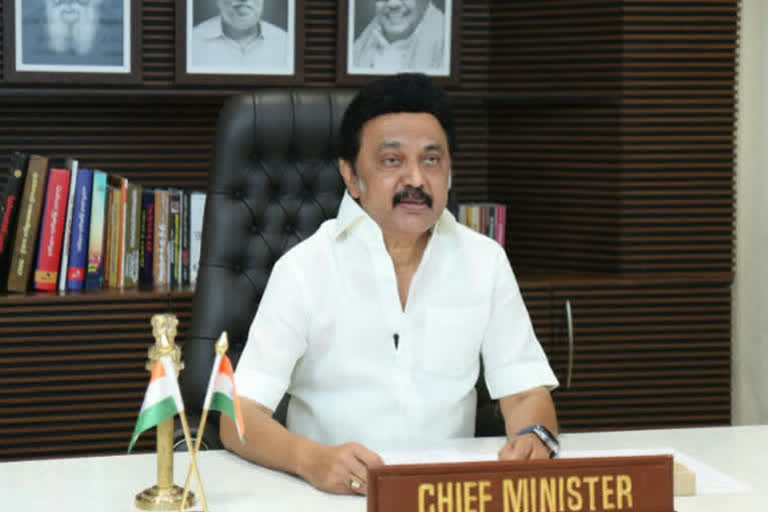Chennai: Close on the heels of the DMK government passing a GO to implement the 10.5% exclusive reservation for the OBC Vanniyar community, within the 20% quota for Most Backward Classes (MBC), Madras High Court is all set to decide its validity. A bench of Chief Justice Sanjib Banerjee and Senthilkumar Ramamoorthy, which declined to grant a stay, will hear the batch of 28 petitions, in the second week of August.
Interestingly, one among the petitioner is a Vanniyar, who is aggrieved that the sub-categorisation has restricted the 20% pool available for the community to 10.5%, provoking a debate on its desirability within the community. Further, the dominant view within the legal fraternity is that the statute stands on a weak wicket.
The legislation for this internal reservation was passed in the Assembly on February 26 by the previous government of Edappadi K Palaniswami (EPS), barely half an hour before the model code for the elections kicked in. This was apparently to salvage the AIADMK's alliance with the Vanniyar-dominant Pattali Makkal Katchi (PMK).
While there are 115 castes in the MBC list in Tamil Nadu, the law provides for exclusive reservation of 10.5% for the Vanniyars and 24 of its sub-sects. Further, it categorises the other castes in the list into two by granting 7% to one group and 2.5% for the De-Notified Tribes, which include some of the Thevar communities, among others. Having alienated non-Vanniyars, this had proved politically costly for the AIADMK in the elections is a different matter.
For the DMK and Chief Minister M K Stalin, implementing it was a compulsion as it could not be seen to be antagonistic to a dominant OBC community, with a high concentration in northern Tamil Nadu. And, Stalin chose to implement the legislation in view of the commencement of the current academic session.
Also Read: CM MK Stalin withdraws 90 cases filed against journalists
In justifying the eleventh-hour legislation, the AIADMK had then said that it was based on the recommendation of the Justice Janarthanan Commission and the 2011 census. However, the EPS government, in rushing through the legislation, had conveniently ignored the Justice Kulasekaran Commission, constituted by it to carry out caste-wise enumeration. The panel is yet to submit its report. And this would prove to be the legislation's Achilles heel, say legal experts.
"The law would not stand judicial scrutiny and would be struck down primarily on three grounds. One is the absence or lack of quantifiable and verifiable data for the present sub-categorisation of MBCs. Second is the Supreme Court verdict in the Maratha quota case, which had taken away the States' power to identify Socially and Educationally Backward Classes. The third is Constitutional validity. Also, this would open up Pandora's box leading to demands from various castes," explained senior advocate KM Vijayan. "Vanniyars are not under-represented in government employment or in education. There are many IAS and Class I officers from the community. From 1972 onwards, the Chairmen of the TN Backward Classes Commission have been Vanniyars," he pointed out.
Also Read: Exclusive OBC Vanniyar Quota: Stalin Turns Compulsion into Advantage
Concurring with him, senior journalist K Venkataramanan said the State's power to redistribute quota is a grey area. While the apex court had vested the power to identify OBCs with parliament, it had also said that the States can have their list till then. The question that arises is whether this permits redistribution, while not exceeding the current quota in vogue.
"In the Maratha quota judgment, it has been clarified that reservation is not for proportional representation but for adequate representation of a community. And this requires verifiable data, which is not there. Further, as per the apex court judgments, reservation could not be granted to a single caste or a cluster of sub-castes, since the basis for affirmative action is class, which is social and educational backwardness. Hence, the nomenclature of OBC," he explained, adding that the internal quota law had stepped into a grey area.
Within the Vanniyar community, the upwardly mobile and well-off sections are opposed to this internal quota, as they feel it is restrictive. Earlier, when the DMK government of Karunanidhi in 2009 earmarked a 3% quota for Backward Class Christians, the community had rejected it as being restrictive. However, Muslims as well as Arunthathiyars, who are at the bottom among the Dalits, have accepted the 3% reservation for each. However, whichever way the High Court decides, it would be of great importance in the road ahead for social justice.
Also Read: Remove cap on central share of premium subsidy under Fasal Bima Yojana, TN CM Stalin urges PM Modi



